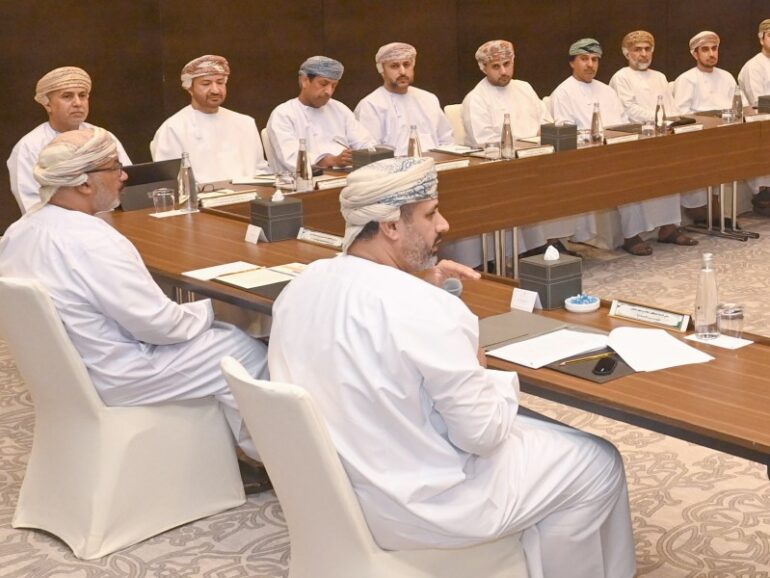 By OUR CORRESPONDENT
By OUR CORRESPONDENT
Muscat – H E Dr Mahad bin Saeed bin Ali Baowain, Minister of Labour and Supervisor-General of the National Employment Programme (NEP), chaired a meeting on Thursday with the heads of employment governance committees representing key economic sectors.
The meeting reviewed the performance of the national employment system, assessed interim indicators, and discussed ongoing challenges in the labour market. It also examined development programmes designed to enhance employment efficiency and align workforce initiatives with Oman Vision 2040.
H E Dr Baowain highlighted the importance of building a flexible and competitive labour market supported by accurate data management and effective governance. He underlined the role of sectoral committees in raising employment rates and preparing Omani talent in line with market needs.
He stressed the growing importance of digital transformation, noting that the ‘Tawteen’ platform plays a central role in regulating the labour market, registering sectors, and analysing skill gaps to improve policy-making and job placement. The minister also emphasised the need to support freelance work systems to diversify employment opportunities.
The session discussed the integration of governance mechanisms, the development of monitoring tools, and the linking of databases to improve coordination between the public and private sectors. Committee members reviewed the progress of initiatives aimed at improving labour market performance and ensuring compliance with employment policies.
A presentation on the Tawteen platform included updated statistics on private sector participation, job vacancies, and registered companies. The system serves as a link between government and private entities, streamlining licensing procedures and reinforcing job compliance in support of the ministry’s digital transformation goals.
Representatives from the committees highlighted achievements across sectors including health, education, technology, energy, and manufacturing. They noted progress in Omanisation, workforce training, and institutional performance, while also identifying challenges such as aligning education outcomes with market requirements and improving productivity.
To address these challenges, the committees proposed expanding collaboration with private enterprises, improving regulatory frameworks, and strengthening training programmes to equip the workforce with future-ready skills.
The governance committees, covering 18 economic sectors, operate within a unified framework aimed at monitoring strategic goals, promoting sustainability, and supporting local value creation.
The meeting concluded with a shared commitment to accelerate initiatives that foster employment growth and empower the national workforce. H E Dr Baowain reaffirmed the importance of continued cooperation and innovation to sustain Oman’s economic development.
© 2021 Apex Press and Publishing. All Rights Reserved. Powered by Mesdac